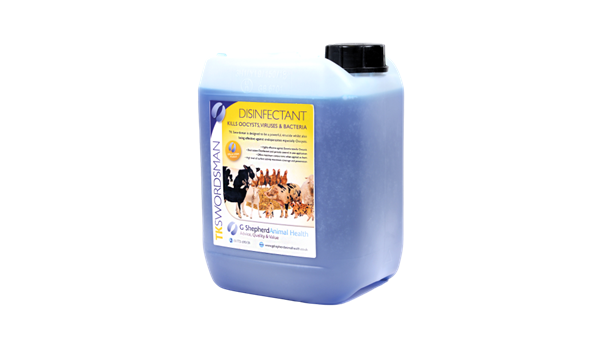Salmonella is a significant concern in the livestock industry, affecting various animals, including calves. In the UK, where agriculture plays a crucial role, understanding and addressing Salmonella in calves are paramount for ensuring both animal welfare and public health. This guest blog explores the intricacies of Salmonella infections in calves, focusing on risks, prevention strategies, and effective management practices.
The Threat of Salmonella in Calves:
Salmonella infections pose a considerable threat to calf health and productivity. Young calves, particularly those under four weeks old, are highly susceptible due to their developing immune systems. The bacteria can cause severe diarrhoea, dehydration, and even death in calves if left untreated. Additionally, Salmonella can spread rapidly within a herd, leading to economic losses and potential contamination of the food chain.
Risk Factors:
Several factors contribute to the risk of Salmonella infection in calves:
Environmental Contamination: Calves housed in unhygienic environments with poor sanitation are more likely to encounter Salmonella-contaminated faeces or feed.
Stress: Stressors such as weaning, transportation, and overcrowding can weaken calves’ immune systems, making them more susceptible to infections.
Contaminated Feed and Water: Consumption of contaminated milk replacers, water, or feed is a common route of Salmonella transmission in calves.
Introduction from Carriers: Infected adult animals, rodents, or contaminated equipment can introduce Salmonella into a calf-rearing facility.
Preventive Measures:
Implementing proactive measures is key to preventing Salmonella outbreaks in calf populations:
Biosecurity Protocols: Strict biosecurity measures should be in place to prevent the introduction and spread of Salmonella on the farm. This includes controlling access, disinfecting equipment, and limiting contact with potential carriers.
Hygiene Management: Regular cleaning and disinfection of calf pens, feeding equipment, and water troughs help reduce the risk of environmental contamination.
Quality Feed and Water: Providing calves with clean, uncontaminated milk replacers, water, and feed is essential for preventing Salmonella transmission through ingestion.
Vaccination: Vaccination against Salmonella, where available and appropriate, can help bolster calves’ immune responses and reduce the severity of infections.
Effective Management Practices:
In addition to preventive measures, prompt detection and management of Salmonella cases are crucial:
Early Detection: Monitor calves closely for signs of illness, such as diarrhoea, lethargy, and reduced appetite. Promptly isolate and test suspected cases for Salmonella.
Veterinary Intervention: Consult a veterinarian for accurate diagnosis and treatment guidance. Antibiotic therapy may be necessary in severe cases, but it should be used judiciously to avoid antimicrobial resistance.
Isolation and Quarantine: Separate infected calves from the rest of the herd to prevent further spread. Quarantine newly introduced animals and monitor them for signs of infection.
Environmental Control: Implement strict cleaning and disinfection protocols in affected areas to eliminate Salmonella contamination and prevent re-infection.
Conclusion:
Salmonella remains a significant concern in calf rearing, posing risks to both animal health and human health through foodborne transmission. By understanding the risk factors, implementing preventive measures, and adopting effective management practices, farmers can mitigate the impact of Salmonella in calves. Together, through proactive efforts and collaboration with veterinary professionals, we can safeguard calf health and ensure the sustainability of the livestock industry in the UK.

